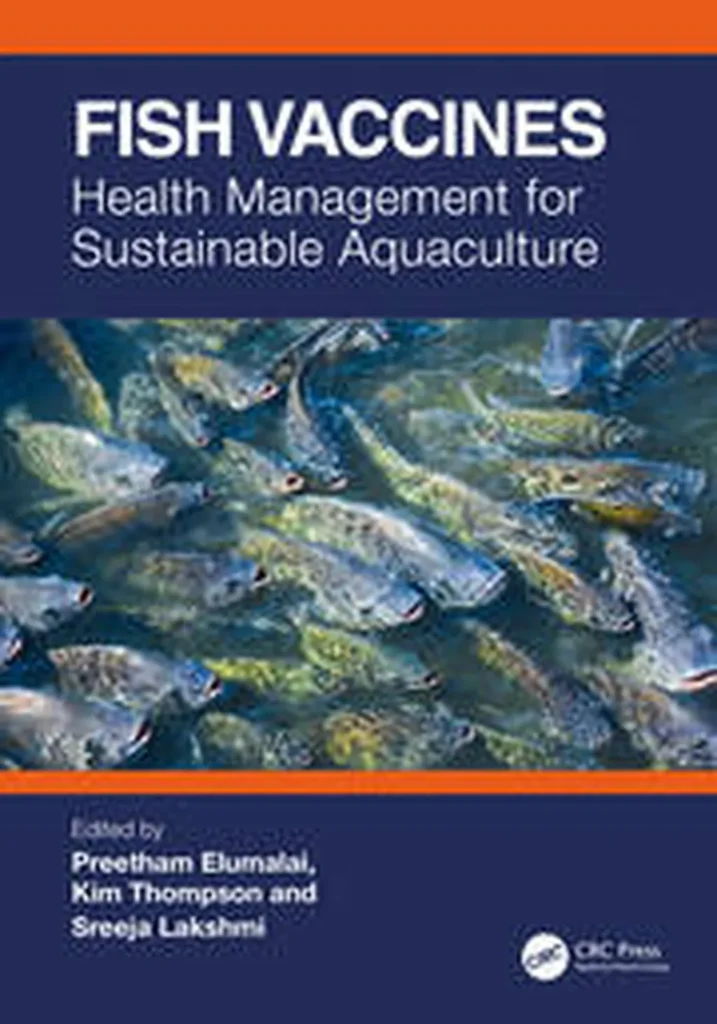In the rapidly expanding world of aquaculture, where fish farming accounts for nearly half of global food fish production, disease outbreaks pose a significant threat to both economic stability and food security. A recent review published in the *International Journal of Bio-Resource and Stress Management* sheds light on how vaccination strategies can be a game-changer in protecting fish health and preventing devastating disease outbreaks. Led by Mavurapu Anusha from the Department of Aquatic Animal Health Management at the College of Fishery Science in Telangana, India, the research delves into the current state of fish vaccines and their potential to revolutionize the aquaculture industry.
The review highlights that the intensification of aquaculture practices, while boosting production, also creates an environment ripe for the rapid spread of infectious diseases. “The expansion of high-density fish populations brings forth a challenge—the rapid transmission and spread of infectious agents including several viral, bacterial, and parasitic diseases,” Anusha explains. These outbreaks not only result in substantial economic losses but also pose food safety and environmental hazards.
Vaccination has emerged as a highly effective and economical strategy to combat these threats. According to the review, vaccines can protect fish from a range of diseases, including edwardsiellosis, motile aeromonas septicemia (MAS), Tilapia Lake Virus (TiLV) disease, infectious salmon anemia (ISA), vibriosis, and white spot disease. The ideal vaccine is expected to be safe, effective, economical, and easily administered. Most currently available fish vaccines are empirically designed, based on inactivated or live attenuated bacterin vaccines.
The research also explores novel advances in immunology, biotechnology, and molecular biology that are paving the way for the development of more effective fish vaccines. These advancements hold the promise of improving existing vaccines and designing new ones to provide sufficient immune protection against a broader range of diseases.
The commercial implications of this research are profound. As the aquaculture industry continues to grow, the need for effective disease prevention strategies becomes increasingly critical. Vaccination not only safeguards fish health but also ensures the economic viability of aquaculture operations. By reducing the incidence of disease outbreaks, vaccines can minimize production losses, enhance food safety, and promote sustainable aquaculture practices.
Looking ahead, the findings of this review could shape future developments in the field. As Anusha notes, “Novel advances in the fields of immunology, biotechnology, and molecular biology have led to the development in designing novel and effective fish vaccines and the improvement of the existing vaccines to provide sufficient immune protection against diseases.” This suggests a bright future for the aquaculture industry, where innovative vaccination strategies could play a pivotal role in ensuring the health and productivity of fish populations.
In conclusion, the research published in the *International Journal of Bio-Resource and Stress Management* underscores the importance of vaccination in the aquaculture sector. By leveraging the latest advancements in science and technology, the industry can better protect fish health, prevent disease outbreaks, and secure a sustainable future for aquaculture. As the global demand for seafood continues to rise, the insights provided by this review offer a beacon of hope for a healthier, more resilient aquaculture industry.

